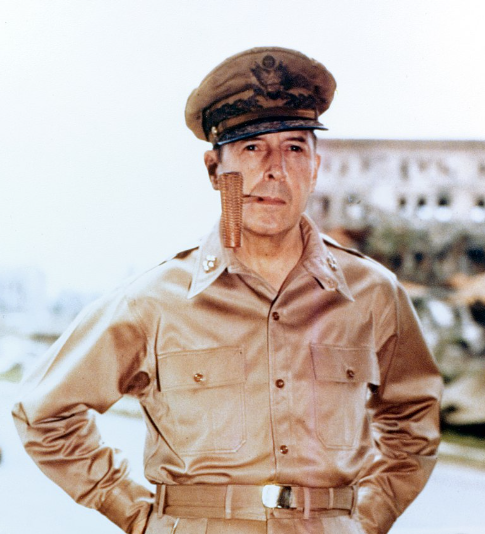Introduction
General Douglas MacArthur stands as one of the most influential and controversial military leaders in American history. His career spanned half a century, during which he played pivotal roles in World War I, World War II, and the Korean War. MacArthur’s strategic brilliance, charismatic leadership, and public persona made him a larger-than-life figure in American military and political arenas.
Early Life and Military Beginnings
Born on January 26, 1880, in Little Rock, Arkansas, MacArthur hailed from a military family. His father, Arthur MacArthur Jr., was a well-respected general, instilling in Douglas a profound sense of duty and patriotism. Graduating at the top of his class from the United States Military Academy at West Point, MacArthur embarked on a career that would see him become one of the most decorated officers in the U.S. Army.
World War I and Interwar Period
MacArthur distinguished himself during World War I, serving with distinction in the 42nd (Rainbow) Division. His bravery in battle earned him multiple decorations, including seven Silver Stars and two Distinguished Service Crosses. After the war, he served as Superintendent of West Point, where he implemented significant reforms, modernizing the curriculum and emphasizing military preparedness.
World War II: Pacific Theater Command
During World War II, MacArthur’s leadership in the Pacific Theater was critical. Following the fall of the Philippines to Japanese forces in 1942, he famously vowed, “I shall return.” His island-hopping strategy, bypassing heavily fortified Japanese positions, and recapturing lost territory, was pivotal in turning the tide of the war in the Allies’ favor. His return to the Philippines in 1944 fulfilled his promise and was a key moment in the campaign.
Postwar Japan and the Korean War
After Japan’s surrender, MacArthur was appointed Supreme Commander for the Allied Powers, overseeing the occupation and reconstruction of Japan. He was instrumental in transforming Japan into a democratic nation, implementing reforms that reshaped its society, economy, and government. However, his tenure during the Korean War was marked by controversy, particularly his public disagreement with President Harry S. Truman over the conduct of the war. His advocacy for expanding the war into China led to his dismissal in 1951, a decision that sparked widespread public debate.
Legacy and Controversy
MacArthur’s military genius, coupled with his complex personality and penchant for the theatrical, left a lasting imprint on American military history. His strategies and leadership during critical campaigns of World War II demonstrated his military prowess, while his role in Japan showcased his capacity for governance and nation-building. Yet, his career was also marked by moments of contention, most notably his public dispute with President Truman, which remains a subject of historical debate.
Conclusion
General Douglas MacArthur’s legacy is one of extraordinary military achievement and complex personal controversies. His impact on military strategy, American history, and international relations continues to be studied and admired. While his actions and decisions have been both praised and criticized, his indelible mark on the course of 20th-century history remains undeniable. MacArthur’s life story is a testament to the complexities of leadership, the burdens of command, and the ever-changing nature of military science and diplomacy.
